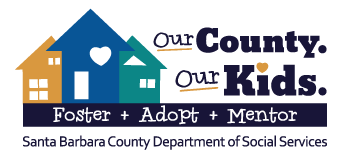Recognizing that 18 was too young for most young adults to be without support, a bill was signed into law in September 2010 giving foster youth the option to remain in foster care and receive services and supports until age 21. The bill is called the California Fostering Connections to Success Act, and is also known as Assembly Bill 12 (AB12). Beginning January 1, 2012, young adults are allowed to remain in Extended Foster Care after they turn 18.
Turning 18 means new choices and opportunities! Participants can receive help with their education and employment goals, as well as have time to develop lasting relationships with caring adults.

Things to Know
- The program is voluntary; it is up to you. You decide if you want to stay in foster care.
- You can change your mind. Should you decide to leave foster care, you can return, provided you meet the requirements.
- You have responsibilities too. You will need to meet with your social worker or probation officer, go to court, and continue to meet the eligibility requirements.

What You Need to Do
You are eligible for this program if you are doing at least one of the following:
- Completing high school or an equivalent program
- Enrolling at least half-time in college, community college, or a vocational educational program
- Employed at least 80 hours a month
- Participating in a program / activity designed to remove barriers to employment
- Unable to do any of the above because of a medical condition

Where You Can Live
You must live in one of the following places to be eligible for this program:
- Home of a relative, non-related extended family member, or legal guardian
- Licensed or approved foster home, Foster Family Agency (FFA) certified home
- Supervised Independent Living Program
- Group home (if needed to complete high school or if you have a medical condition)
Your Responsibilities
To be part of this program, you will need to:
- Meet with your social worker or probation officer each month
- Attend a court hearing or administrative review every 6 months
- Sign an agreement
- Agree to work with your social worker or probation officer to meet the goals of your Transitional Independent Living Case Plan and receive case management services
How to Learn More
- Ask your social worker, probation officer or attorney for more detailed information
- Visit the Independent Living Program page
- Check out this website for the answer to the AB12 “Question of the Week”
New videos about Extended Foster Care can be viewed on the After18 YouTube channel.
